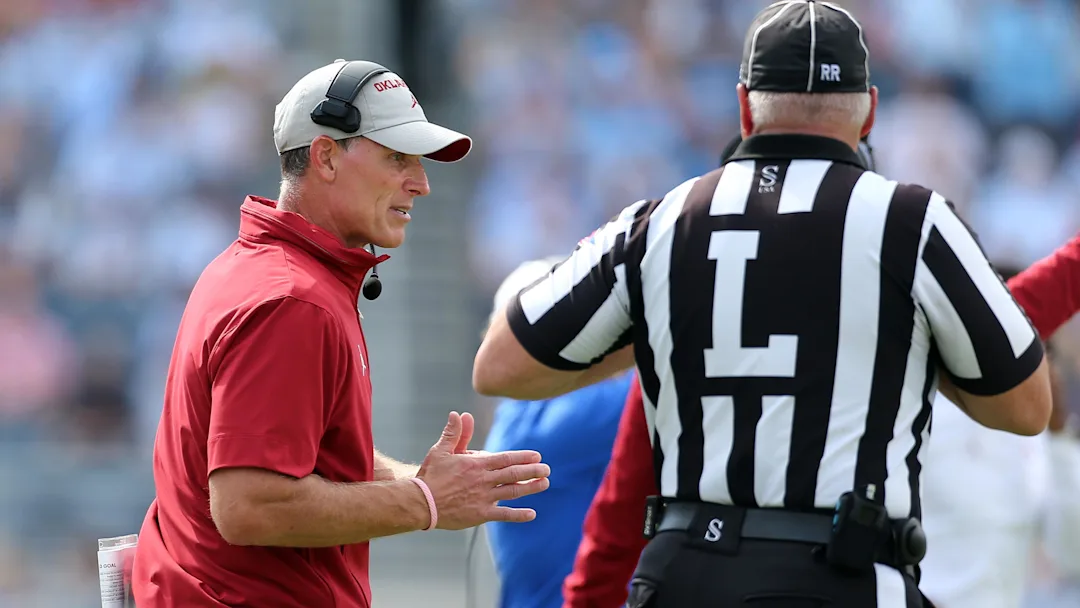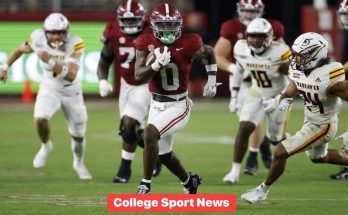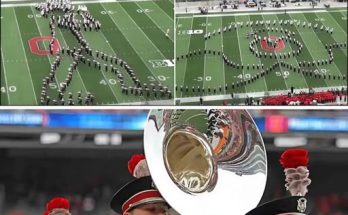Brent Venables has long been a figure of intense interest and speculation in the college football world, especially since his move from Clemson to Oklahoma. The Sooners’ head coach, who took over the reins in late 2021, arrived amid great expectations, and the early years of his tenure have been scrutinized from every angle. Recently, an anonymous SEC football coach—someone who knows the pressures and demands of coaching in a Power Five conference intimately—gave a candid and revealing perspective on Venables’ future at Oklahoma, shedding light on what many insiders have been thinking but few have dared to say publicly.
Venables’ name comes with a heavy weight in the coaching circles. As one of the most respected defensive minds in the game, his reputation was forged during an incredible run at Clemson, where he was the defensive coordinator for nearly a decade. Under his leadership, Clemson’s defense was one of the nation’s best, helping the Tigers secure two national championships and consistently producing NFL-level talent. When Oklahoma hired Venables as their head coach, there was an air of optimism that he would quickly restore the program to national prominence, especially given his pedigree and recruiting capabilities.
However, the transition from coordinator to head coach at a storied program like Oklahoma has proven far from seamless. The Sooners have struggled to consistently reach the heights expected of them, with uneven offensive performances and an inability to fully lock down dominance in the Big 12, a conference in flux and transition itself. For a program used to competing for playoff spots and national titles regularly, the current results have been underwhelming. And that is precisely where the candid insight from the anonymous SEC coach becomes telling.
This SEC coach, who has remained unnamed due to the sensitive nature of the topic and the political realities of coaching conversations, opened up about the complex nature of Venables’ position. According to this source, there is a growing sentiment in the college football coaching fraternity that Venables is at a crossroads. The coach emphasized that the SEC environment—where expectations are as fierce, if not fiercer, than at Oklahoma—provides a useful lens to evaluate Venables’ situation.
The coach explained, “Brent is undeniably a brilliant defensive mind. No question about that. But being a head coach, especially in a conference as competitive as the SEC or a high-pressure environment like Oklahoma, demands so much more than just defensive genius. It’s about managing the whole program — the offense, the recruiting, the media, the boosters, the fans, the administration. You have to be a leader on all fronts.”
In this context, the coach described Venables as somewhat of a square peg trying to fit into a round hole. His strength remains his defensive acumen, but the broad responsibilities of the head coach role appear to have exposed some vulnerabilities. The source continued, “He’s still learning how to manage those other aspects. That’s natural. But in places like Oklahoma or in the SEC, the margin for error is small. Fans and stakeholders want quick results, and patience can wear thin fast.”
It’s important to note that Oklahoma is no stranger to high coaching turnover. The program has cycled through several head coaches in recent years, each brought in with the hope of returning Oklahoma to the top tier of college football. Venables, with his background and personality, was widely regarded as the “right guy” to do just that. Yet, results on the field have been a rollercoaster, with flashes of promise interspersed with disappointing performances.
The anonymous coach also hinted at the recruiting challenges Venables has faced. While Oklahoma is still a significant draw, the program no longer dominates recruiting the way it once did, especially with the rise of Texas A&M, Texas, and other Big 12 and SEC schools aggressively vying for top talent. “Recruiting is the lifeblood,” the coach said. “Venables has some work to do to keep Oklahoma in the top tier of recruiting pipelines. He’s competitive, but it’s not quite clicking like some expected.”
In addition to recruiting, the coach addressed the sometimes harsh media scrutiny that Venables endures in Norman. Oklahoma’s fan base and media market are demanding and passionate. Venables’ style, described as reserved and focused on football fundamentals rather than flamboyance or constant sound bites, has sometimes clashed with the expectations for a head coach to be a more outspoken, charismatic public figure. “Oklahoma is not Clemson,” the coach remarked. “The culture is different, the pressure is different. Sometimes you have to adapt to the environment and be the coach and public figure they want you to be.”
Despite these critiques, the coach expressed genuine respect for Venables and an understanding of the difficult position he is in. The coach also stressed that Venables still has time to turn things around but must show tangible progress soon to quell growing doubts. “Brent has the tools, the experience, and the drive,” the coach said. “But the next 12-18 months are crucial. If he can start putting more consistent results on the board and strengthen his recruiting classes, he’ll silence a lot of the critics.”
Interestingly, the coach also hinted at some behind-the-scenes support within the Oklahoma administration, which remains patient but understandably anxious. “The university loves what Brent stands for in terms of culture and character. But wins and losses are the ultimate currency. The board and the athletic department want to see a clear path forward.”
This candid assessment aligns with some of the recent buzz around the program. While Venables has made strides in stabilizing the defense and instilling a strong culture, Oklahoma’s offense has struggled to find identity, and inconsistency has plagued the team’s performance. With the college football landscape evolving rapidly—due to the transfer portal, NIL deals, and shifting conference alignments—the Sooners face an uphill battle to reclaim their national standing.
From the SEC coach’s perspective, Venables embodies the complexity of modern college football head coaching. “You can’t just be a great coordinator or a great recruiter anymore,” the coach said. “You have to be a master of everything—strategy, motivation, administration, media relations, and even marketing. Brent is getting there, but it’s a tough learning curve, especially at a program like Oklahoma.”
The SEC coach also speculated on possible future moves for Venables if the results don’t improve. “There’s always the chance he might take a step back to focus on what he does best—defense—or possibly move to another program where expectations aren’t as sky-high right away. But that’s speculation. Right now, he’s Oklahoma’s man, and I think he’s determined to make it work.”
For Oklahoma fans and observers, the coach’s insight offers a rare and valuable window into the realities faced by Venables. The stakes are high. Oklahoma is a program built on tradition, championships, and national prestige. The fans want to believe in Venables’ vision, but the clock is ticking. The next recruiting cycle, the next season’s win-loss record, and how Venables handles the ongoing pressure will likely determine the trajectory of his tenure.
Ultimately, the anonymous SEC coach’s candid remarks serve as a reminder that college football coaching is a multifaceted, high-pressure profession that requires more than just expertise in X’s and O’s. Brent Venables, with all his talent and promise, is navigating this complex landscape with a mix of challenges and opportunities ahead. Whether he can translate his defensive brilliance into sustained success as a head coach at Oklahoma remains one of the most intriguing storylines in college football today.



